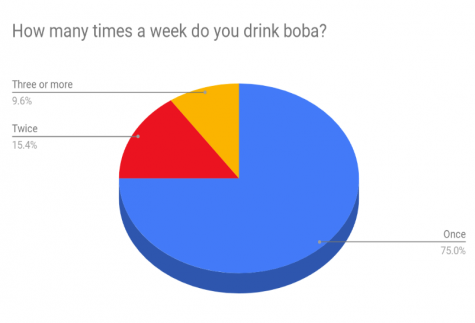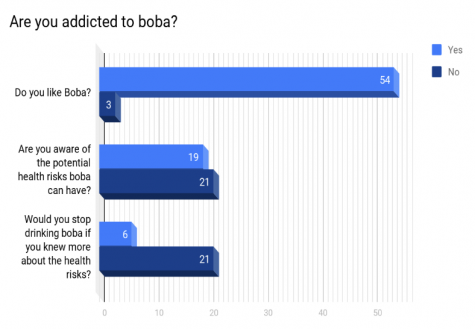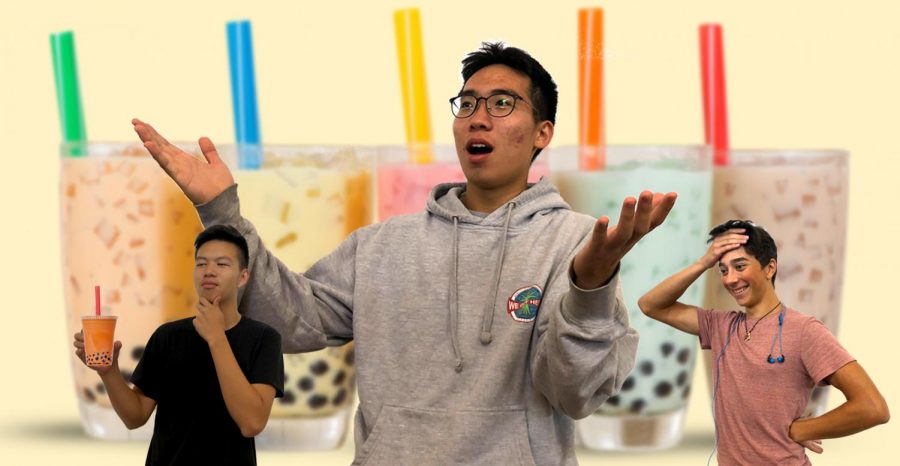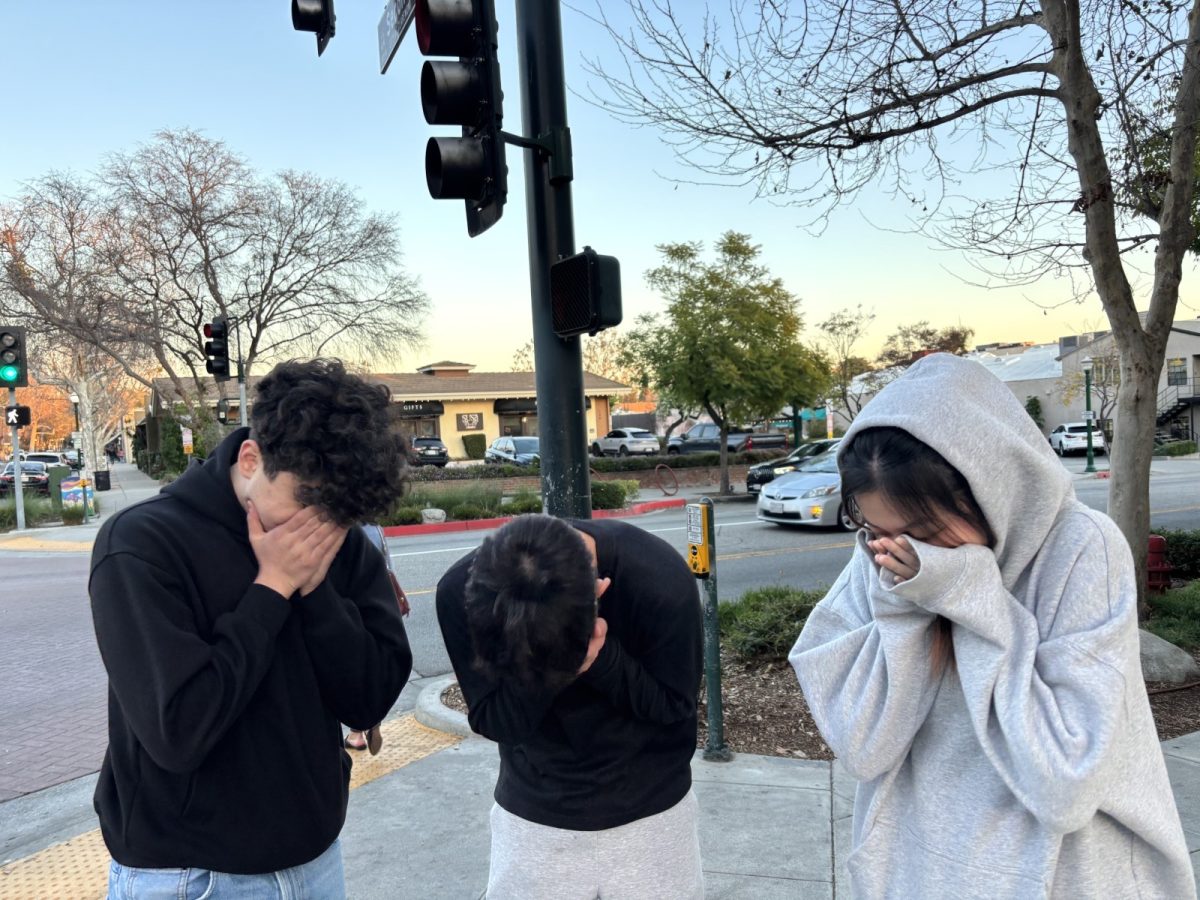Boba is not only a deliciously sweet drink, but it is also a way of life here at The Webb Schools. In recent years, boba has become extremely popular amongst students, but what many do not realize are the health effects of boba.
57 students at Webb recently participated in poll questioning their addiction to boba. Out of 57 students, 54 agreed that they like boba, while only three people do not. It is no secret that boba is an important aspect of life at Webb. In fact, 39 survey respondents drink boba once a week (75%), eight people drink boba twice a week (15.4%), and five people drink boba three or more times a week (9.6%).

Gabe Bustamante (‘21) is one of few who dislike boba. Gabe said, “Boba is nasty and it doesn’t taste good. I don’t see how people like it.”
Nick Johnson (‘19) said, “Everyone is obsessed with it. But I don’t understand how people like it. It’s slimy.”
Ben Martinez (‘19), a boba enthusiast, said, “Boba incites excitement in the general populous. When boba is mentioned, people immediately want it.”
When asked about their knowledge of the health effects of boba, only 19 students answered ‘yes’. While 29 people said they did not know anything about the health risks, nine people claimed to not care. Lastly, when asked if students would stop drinking boba if they were more educated on the health effects, six people said they would stop drinking boba if it harmed their health (10.53%), 21 people would not stop drinking boba (36.84%), and 30 people said maybe (52.63%).

Boba is made from tapioca starch or flour, which is extracted from the cassava root, grown primarily in Nigeria and Thailand. In the last few years, there have been rumors concerning chemicals that have been added to boba tea mixes and imported to the United States.
The Public Health Statement reports that diethylhexyl phthalate, also known as DEHP, is sometimes used as an additive for boba tea flavorings. DEHP is also used to soften plastics.
It is added to flavorings and mixes to enhance color and texture in place of the more expensive palm oil. Many studies on animals have suggested that DEHP causes stunted fertility and growth development issues. These issues can potentially affect humans in the same way.
Last fall, a report from Germany suggested that tapioca pearls may cause cancer. Manfred Möller, the lead researcher of the study, identified these substances as belonging to a class of compounds called polychlorinated biphenyls (PCBs). Exposure to PCBs has been known to cause cancer in animals by the U.S. Environmental Protection Agency.
The Consumer Protection Committee in Taiwan conducted a round of testing, collecting 22 samples of tapioca pearls from seven manufacturers, and concluded that none contained styrene, a chemical. The agency did find brominated biphenyls and acetophenone, which are dangerous chemicals in large quantities, but the quantity was too small to create any health concerns–for now.
Even though boba may not cause cancer, the drink contains extremely high amounts of sugar and carbohydrates. A 16-ounce serving of boba milk tea contains between 279 and 317 calories. Many of these calories come from carbohydrates. A 16-ounce serving of boba milk tea contains 48 to 56 grams of carbohydrates.
Some researchers claim that just one ounce of tapioca pearls contains 100 calories. Considering that recipes call for two to three ounces of pearls per cup of tea, you are consuming some major calories.
Brigid Corbin (‘19) said, “Live fast die young.”
Although boba is a tasty drink, students should take into consideration how it is affecting their body. Even with the rumor that boba causes cancer up in the air, most students have collectively agreed that they would not give up drinking it.
Anne Lofgren (‘19) said, “I think everything causes cancer these days. The sun causes cancer. Why stop drinking boba?”
It may not be reasonable to eliminate boba completely from your diet, but limiting consumption is highly recommended.









